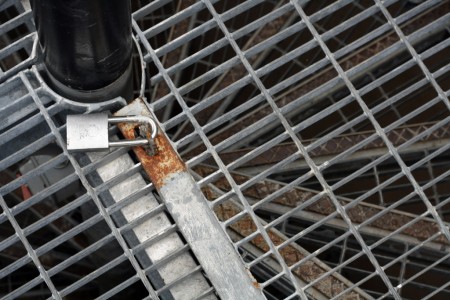
Why did governments bail out failing financial institutions?
They said it was because banks and insurance companies were so interconnected with the rest of the economy that, if they failed, they would cause a cascade of other failures. If the banks went broke, firms that actually have sound businesses would fall as well. That supposedly risked turning the credit crunch into a general depression.
Assuming this argument is correct, the natural question is what we should do to eliminate that vulnerability, termed ‘systemic risk’ by economists. It is as though we are mountain climbers attached by a tether to the banks. When they start to slip, we need to save them, in order to keep from being pulled over ourselves. Once we have done that, however, we need to start thinking about how to get rid of tether.
According to the argument that politicians are making, we got dragged to the edge of the cliff this time. To experience that and not think seriously about how to get ourselves untethered is stupid and irresponsible.
1) Make banks smaller
No single bank should be large enough that its collapse could threaten the economy as a whole. Banks should be small enough to fail.
2) Make finance more boring
Get rid of complex new products like collateralized debt obligations and credit default swaps. Treat new financial products like new pharmaceuticals, with the onus on those developing them to show that they are safe, and with tough oversight and regulation.
These things seem to spread risk around in the financial system in ways that make it possible for relatively minor players (even non-banks) to really screw things up.
3) Separate the safe and risky sides of banking
There should be two sorts of banks.
The first sort will take deposits and make very safe loans, like well-secured mortgages or loans to businesses with a strong plan for paying them back. These banks should be insured, so that if they fail the depositors don’t lose their money.
These banks should be allowed to call themselves ‘safe banks’ or ‘guaranteed banks’ or something similar, so it is clear to everybody that they are in a special category that excludes the second type.
The second sort can basically do whatever they like. They can invest in all sorts of unusual financial instruments, and try to make profits. When they fail, their depositors get nothing. The only things they cannot do are get too big (see point 1) or sell products that threaten the system (see point 2).
The government loves to boast about how well Canada weathered the financial crisis. The basic reason for that seems to be how boring our banks were forced to remain, as the result of heavy regulation. The places with laissez faire regulatory approaches – like the United States, Ireland, and Iceland – are the ones that have had the most to fear from the credit crunch.
4) Accept the drawbacks
This plan has a number of drawbacks.
First, it might make the financial system less efficient at allocating capital. That’s what banks claim is their value added to society: they match up people who have wealth but no ideas for using it productively with people with ideas and talents, but not enough money.
Making the financial industry safer would reduce returns for savers, and reduce the financing opportunities for firms and entrepreneurs. We might be turning a Ferrari into a Volkswagen, but there are good reasons to do so. For one, it is better to ride in a Volkswagen at 90 km/h than in a Ferrari that goes 120 km/h but sometimes explodes and kills everyone inside. For another, banks and bankers will always have the financial means to manipulate politicians. They are well placed to get a good deal for themselves, whereas the general public is in a weaker position. Since there is a built-in bias in politics towards making things easier for the rich, having some special protection for the general welfare of the population seems justified and appropriate.
Second, making the system safer will make it harder for poor people to get credit. The safe banks won’t offer mortgages to people who are likely to default on them, and the risky banks are likely to change an arm and a leg for them. That said, it was probably always a fantasy for people of modest means to buy big houses in cities with overpriced property markets. Also, by reducing the speculative froth in real estate markets, the approach outlined here could end up helping such people in the long run.
That being said, I think a plan basically resembling this one is worthwhile. Most importantly, it would largely eliminate the systemic risk which we are creating right now by bailing out the institutions that have been the least responsible, because of the threat they pose to everyone else. What that approach will ultimately produce is another, larger crisis.
Of course, this is all a pipe dream. Politicians don’t have the bravery or far-sightedness to do any of this, and bankers are clever enough and rich enough to convince them and bribe them into leaving them basically alone. Besides, that next crisis will probably happen when another lots of politicians are in charge, and those who organized today’s bailouts are occupying well-paid seats on the boards of the banks they rescued.






